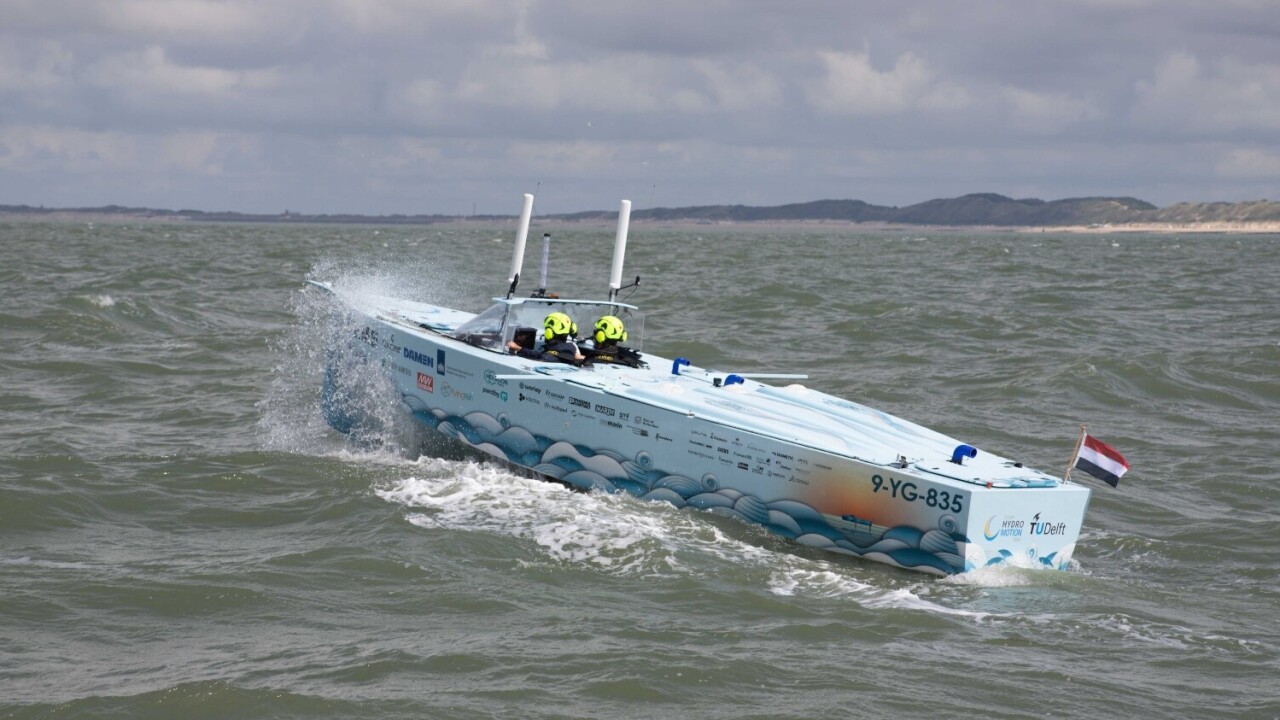
A team of students from the Technical University of Delft have made history by crossing the North Sea in a fully hydrogen-powered boat.
TU Delft’s Hydro Motion team set off from Breskens, Netherlands on July 11, with 160km of rough ocean ahead of them. Shortly into the trip, however, the vessel suffered a failure in its cooling pump and had to dock in Belgium for repairs.
After a bit of tinkering, the issue was resolved and the crew set sail once more. They arrived at Ramsgate, UK, 12 hours later. The boat, which cruises at 40km/h, made the trip using just 12 kgs of hydrogen fuel.

The students started building the experimental vessel in August last year. Everything — from the carbon fibre hull to the hydrogen propulsion system — was made from scratch.
The eight-metre-long vessel is powered by a fuel cell that sucks hydrogen from three storage cylinders and converts it into energy. This energy feeds into a battery pack which in turn powers the motor.

TU Delft students have been working on greener boat designs for almost 20 years. For over a decade the university championed the development of solar-powered boats, making the switch to hydrogen four years ago.
Hydrogen power
The Hydro Motion project aims to demonstrate the viability of hydrogen as a fuel source for ships, which are one of the hardest forms of transport to decarbonise. The global shipping industry contributes 3% of global carbon emissions — more than air travel.
Hydrogen is the “best way to store green energy,” said the Hydro Motion team on their website. “When converted by fuel cells it has an energy storage density approximately 235 times larger compared to industry standard lithium-ion battery cells.”
Hydrogen boats have been making significant headway in recent years. In 2021, Norway launched MF Hydra, the world’s first hydrogen-powered ferry. The country recently started building two more of the vessels.
However, most hydro boats today are much like TU Delft’s — experimental prototypes not designed for commercial use.
The main problem with bringing them to the market is cost and infrastructure.
Hydrogen, especially the green variety, made using renewable energy, is not available in large quantities today. There are also several technical challenges in handling the fuel safely and making it cost-competitive with diesel.
Get the TNW newsletter
Get the most important tech news in your inbox each week.




